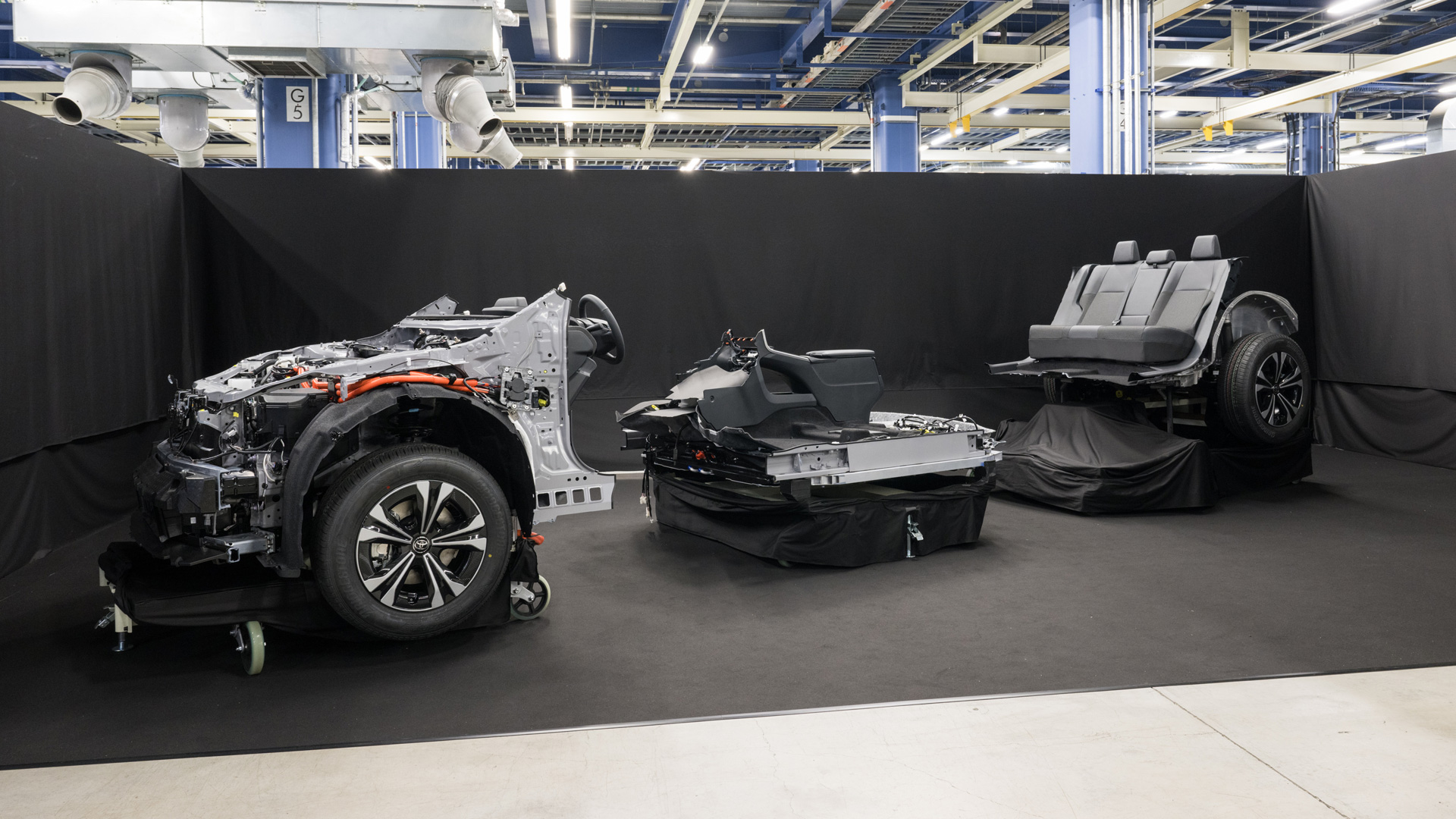

Toyota has reportedly demonstrated a prototype production line for a cast car chassis, made by a process sometimes referred to as “gigacasting.” The new manufacturing technique may offer significant production advantages, but could hand consumers the short end of the stick when it comes to the castings’ repairability.
The casting process was demonstrated at Toyota’s Myochi plant in Japan, where it fabricated the rear third of a unibody at an event attended by Nikkei Asia. Cast unibodies are proposed as a potential replacement for conventionally assembled unibodies, which combine shaped metal pieces via welding, industrial adhesives, and more to form a car’s frame. In an example given by Toyota, a unibody built with traditional methods required 86 parts, 33 steps, and hours on an assembly line. But in its demo, the company reportedly produced a cast equivalent in a mere three minutes.

Toyota reportedly expects cast bodies to reduce production complexity, costs, and preparation time, not to mention make more efficient use of factory floor space. Fully optimized, Toyota anticipates it’ll generate 20 percent higher productivity than its competitors, and could halve body assembly time from 10 hours.
The technology will reportedly first be used for a mass-produced electric vehicle that will arrive in 2026 with cast front and rear body structures. Toyota reportedly plans to make cast bodies integral to its EV strategy, though 40 percent of its EVs in 2026 will still use variations of the existing TNGA architecture.
Cars with cast unibody components are already sold by Tesla, which nicknamed the technique “gigacasting.” However, Tesla‘s pattern of poor quality control emerged here too, with one driver of a Model Y made in Austin, Texas finding frame fissures they could shine a light through. This doesn’t mean casting is unsuitable for unibodies, as Toyota—whose identity and image are rooted in quality and reliability—likely wouldn’t ship a car with such a worrying flaw.
That said, it’s unclear what the implications of using cast unibodies could be. Casting could theoretically cut costs and weight, but the porosity of cast metals could reduce strength, and therefore safety. Additionally, there is the question of repairability, as cast bodies might be more difficult to fix in the event of major damage, such as a crash. Body Shop Business describes repair options for cast metals as “limited,” so it’s possible any significant damage could total a vehicle with a cast unibody.
Such a scenario would be to Toyota’s benefit however, as an unrepairable car will still need replacement—potentially with a new car. Repairability is something the automotive industry has directly combated in recent years, with a Toyota-backed industry group sponsoring a scare campaign to (unsuccessfully) undermine a right-to-repair bill. Car companies make their money from selling new cars, not keeping old ones on the road. If cast bodies serve that end better than those stitched together, it’d be no surprise to see them become the industry standard.
Toyota did not respond to The Drive‘s request for further details on cast unibodies.
Got a tip or question for the author? You can reach them here: james@thedrive.com